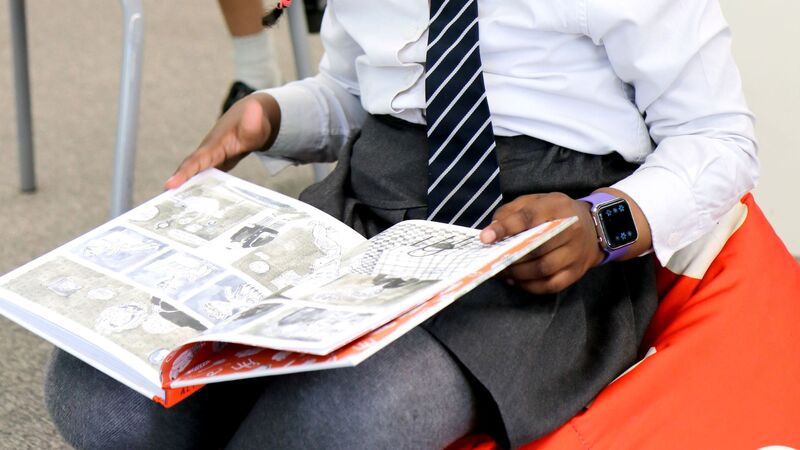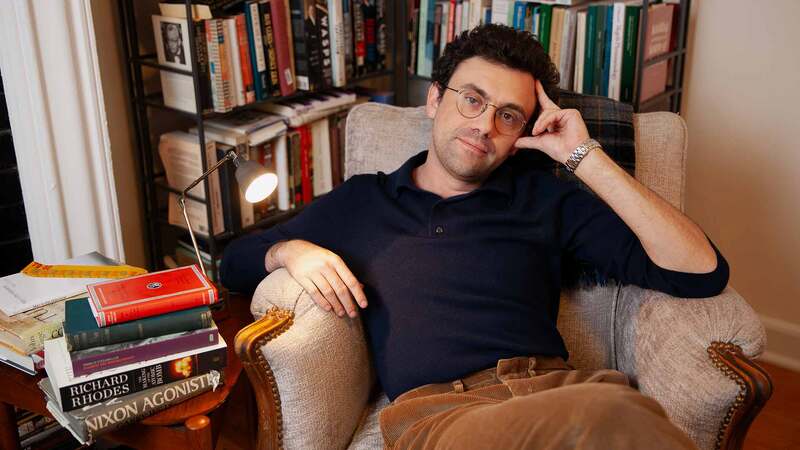You are viewing your 1 free article this month. Login to read more articles.
Hachette in Famous Five trademark dispute with comedy sketch show
A theatre sketch show put on by graduates in Cambridge has received legal threats from Hachette UK for allegedly infringing its Famous Five trademark for the publisher's parody series Five Go.
The production, "Five Go Off on One!", due to be performed next in August, was first issued legal warnings after the show's appearance at Edinburgh Fringe Festival last summer. During the performance, eight comedians take to the stage to "lovingly ridicule" hundreds of pages of children's literature in the space of an hour.
But Hachette argued the title could be "misleading" and potential punters might wrongly believe Enid Blyton Entertainment had endorsed it.
A spokesperson for Hachette told The Bookseller it could "make and take a joke", and didn't intend to stop the show being performed. However, the publisher needed to ensure the trade mark "is protected and that the phrase is not used in a misleading way and that its use does not conflict with any licences that we have already issued". Hachette has already licensed stage rights in The Famous Five to another production company.
According to the comedy circuit's news site Chortle, which first reported the dispute, Robert Eyers, the show’s creator and part of a group called Amorous Prawn, did initially change the title of the gig to "The Reasonably Well Known Five: An Unofficial, Unlicensed and Unrestrained Parody" in response. But Hachette continued to take issue with use of the word "Five" - "and the allusion to 'Famous'" - demanding the title be changed again.
As a result, and under time pressure to finalise marketing materials within a week, the show's creators changed the name of its show for a second time to "Four Go Off On One! A Jolly Good Romp Through Childhood", while "poor old Timmy", the dog, was also omitted from the sketches, altering a storyline just two months before opening.
Eyers told The Bookseller the legal tussle had been an "administrative nightmare" and argued that the show "significantly predates" Hachette’s parodies, after a version of "Five Go Off On One!" was first performed in a student theatre in Cambridge in February 2016. "In fact I’ve got drafts of the script dated back to September 2015 - it would be impossible for it to have had anything to do with 'Five On Brexit Island' etc, and it certainly wasn’t inspired by them," Eyers said.
He further argued that Hachette's trademark is registered as "The Famous Five" rather than "Five Go". However, he said they "decided to give in" rather than risk going to court.
"When they first got in touch I was hopeful that a publishing house, being generally supportive of writers (as writers are their raison d’être), would have taken a less heavy-handed approach - perhaps asked for a bit more information about the show, or asked to see a script - to decide whether we would actually damage their brand," Eyers said. "I was surprised that they were so indifferent to the actual content of the parody and focussed entirely on the name."
A Hachette spokesperson said: "We have no intention of preventing the performance of a genuine parody and we have demonstrated with our own Famous Five parodies that we can take and make a joke. However, we own the trade mark 'The Famous Five' and we do need to ensure that it is protected, that the phrase is not used in misleading way and that its use does not conflict with any licences that we have already issued. The copyright laws relating to parodies do not apply to trade marks."
Bristows partner Paul Jordan, whose experience includes advising major brands on trademarks during the 2012 Olympic Games, told The Bookseller he thought Hachette's move against the outfit was "a really weak claim".
"I do not think the two marks are confusingly similar," Jordan said. "This looks like one of those disputes where the complainant knows the respondent is under commercial pressure (in this case finalising marketing collateral) and notwithstanding a weak claim there was a good chance the play producers would have little time to investigate the merits fully."

















